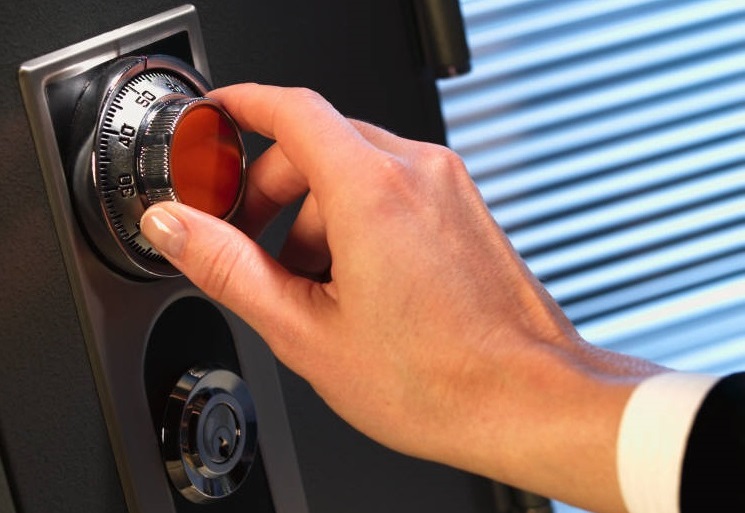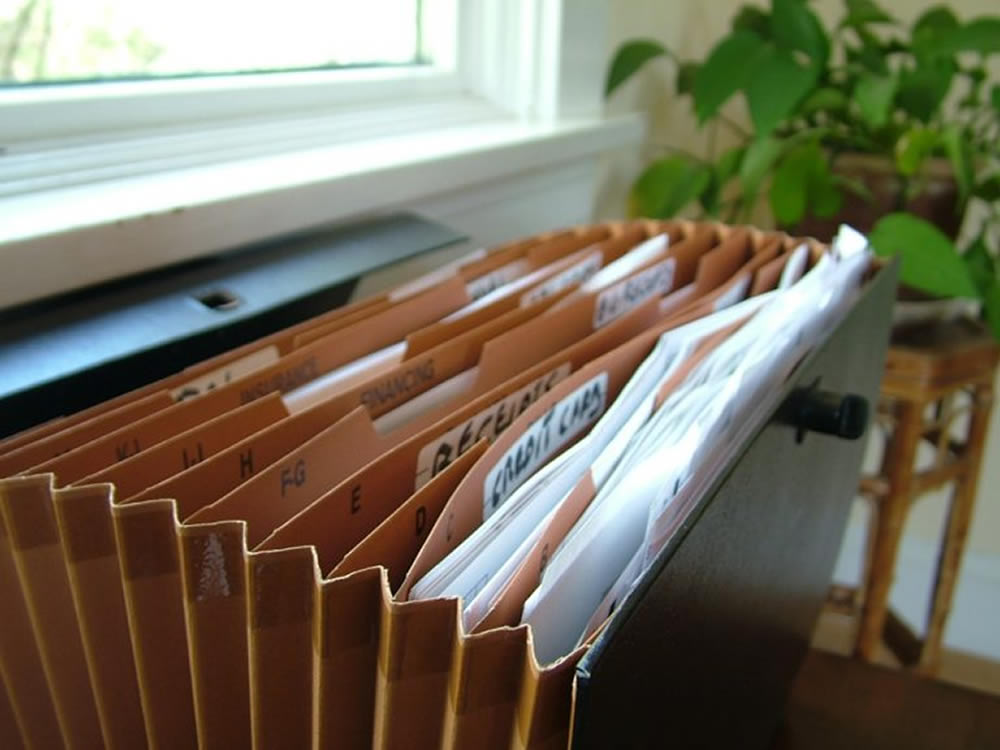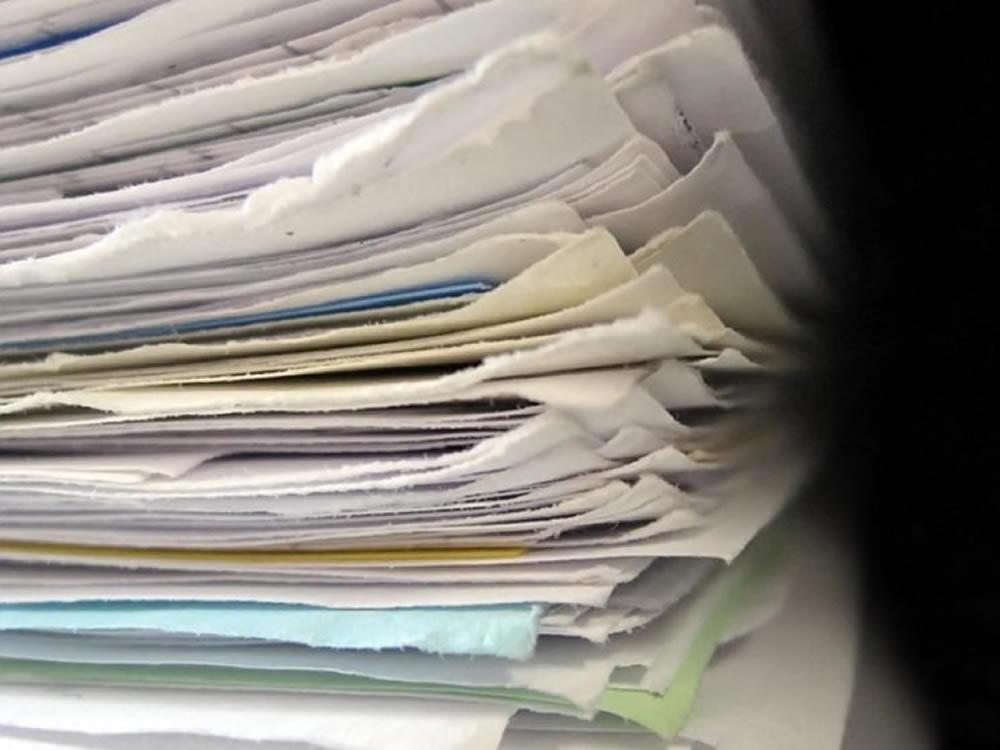Sound wealth management includes keeping your financial information organized and secure, so that it’s easily accessible, but only to you and the people you nominate. When it comes to storing financial paperwork, estate documents, and other valuables, you might consider a safe or a safety deposit box. SageVest Wealth Management offers an overview of the two options, and guidance on what to keep in a safety deposit box versus a safe.
What To Know About Safety Deposit Boxes
A safety deposit box is a metal box housed in the vault of your bank that you lease on an annual basis. Safety deposit boxes are more secure than home safes because they’re harder to access – even if you’re the owner of the contents! Safety deposit boxes involve dual control: you have one key, and bank personnel have the other. You need both keys, plus a way to verify your identity, in order to gain access.
Plan ahead when it comes to a safety deposit box. Access is only granted during normal banking hours, and only to the owner or nominated individuals. You must even nominate your spouse if they need access, as this isn’t an automatic right.
Safety deposit boxes are also safer because the bank vault can better withstand severe conditions like tornadoes or fires. Nonetheless, you should protect safety deposit box contents (especially documents) from possible water damage by storing them in watertight containers.
It’s important to know that the contents of your safety deposit box are typically not insured by the bank or the FDIC against loss or damage. Your homeowner’s insurance may cover contents up to a certain limit, or you can purchase a policy rider.
A bank can access your safety deposit box without your permission:
- if there’s a court order.
- if you haven’t paid your bill.
- if your property remains unclaimed for a state-specified time period, typically 2-5 years.
What To Keep In A Safety Deposit Box
A good rule of thumb about what to store in a safety deposit box is any item that’s difficult, expensive, or impossible to replace. For example:
Household inventory
- If your home’s damaged or destroyed, you’ll need this information to make an insurance claim, and to claim a casualty loss on your income tax return.
- If you don’t have a safety deposit box, store this information at work, with a trusted relative or friend, or in a digital vault.
Important documents
Store the following in sealed containers in your safety deposit box, with photocopies held in a separate, secure location:
- Birth, marriage, divorce, and citizenship documents.
- Diplomas, educational transcripts, military records, and other professional credentials.
- Financial documents and records, including paper stock and bond certificates – although these are typically issued electronically nowadays.
- Deeds and titles e.g., car, home, etc.
Small items of great value or personal significance
- Jewelry.
- Family photos.
- Rare coins.
- Heirlooms.
Electronic back-ups
- Computer back-ups.
- Flash drives.
What To Know About Home Safes
Even the most expensive home safe is less secure than a safety deposit box. However, a home safe is still important for storing items that are needed frequently or during an emergency.
Safes come in different sizes, security levels, fire protection standards, and even water resistance. Some can be installed in a wall or bolted to the floor. Others feature time locks that allow access only during certain times, or that require a waiting period before the safe unlocks. Some experts even recommend two safes, where one acts as a decoy and contains less valuable items.
Install your home safe out of sight, yet easily accessible, preferably in a low-traffic area. Avoid your master suite or garage, which are easy targets for burglars. The best location for fire protection purposes is on an outer wall that’ll stay cooler during a fire. To avoid water damage, install your home safe at waist height or above.
What To Keep In A Safe
Copies of estate planning documents
- A copy of your will. A safety deposit box is typically sealed upon death, and your representatives will need court documents to access it. This may mean it’s too late to fulfill your last wishes. We always advise for your attorney to hold an original copy, as well as sharing a copy and location of the original document with at least one trusted party such as a family member or your financial advisor.
- Your medical and financial Power of Attorney documents. Again, it’s advisable for your attorney to hold an original copy, with copies on file with your family, financial advisor, or another trusted party in event of an emergency.
- Copies of estate planning documents where you’re named the executor.
Financial information
- Information about debts, payment schedules, contracts, and more.
- Information about your safety deposit box and contents.
Contact information
- Financial advisor
- Estate planning attorney
- Tax preparer
- Doctor and other health professionals
Emergency cash
- Power outages, regional disruptions, and other emergencies can make it difficult or impossible to access your money.
Health and personal information
- Information about medications, including dosage, pharmacy info, etc.
- Your Social Security card.
Travel documents
- Your passport.
Keys
- Spare car and house keys.
- The keys to your safe deposit box.
Alternatives To Safety Deposit Boxes And Safes
Electronic records can be stored in a digital vault. This provides around-the-clock access and you can easily share the login with your chosen representatives, even if they live interstate or overseas.
Some businesses offer private vaults that function like secure storage units. They’re less secure than a safety deposit box, but offer greater access to your belongings i.e., outside banking hours.
Whether you use a safe, safety deposit box, digital vault, or other method to safeguard your important documents and valuables, it’s essential to plan ahead, stay organized, and ensure that your nominated representatives know when and how to access your safe, safety deposit box, or other.
SageVest’s LifeList offers a handy reference option to keep track of your important documents and data.
If you’re interested in securing your financial future, we invite you to contact us.




